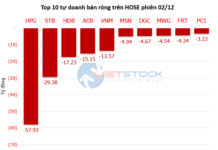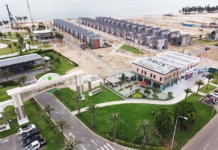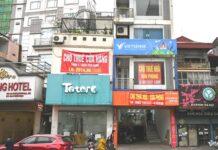Article 6 of the 2014 Housing Law prohibits the use of apartments for non-residential purposes. However, it wasn’t until the 2023 Housing Law came into force on August 1st that this regulation was vigorously enforced by some localities and apartment buildings.
Prohibitory signs in many places
According to a survey conducted by Nguoi Lao Dong reporters, during the weekends, apartment buildings near the center of Ho Chi Minh City that offer short-term rental services in Districts 1, 4, and Binh Thanh no longer bustle with guests coming and going as they used to a few months ago. At the foot of each apartment building is a sign prohibiting residents from renting out their places for short periods.
For instance, at The Gold View apartment building on Ben Van Don Street, District 4, we observed a large notice board placed right at the entrance, stating: “Warning about using apartments for business and short-term accommodation purposes (daily or hourly) is an act strictly prohibited by law… “
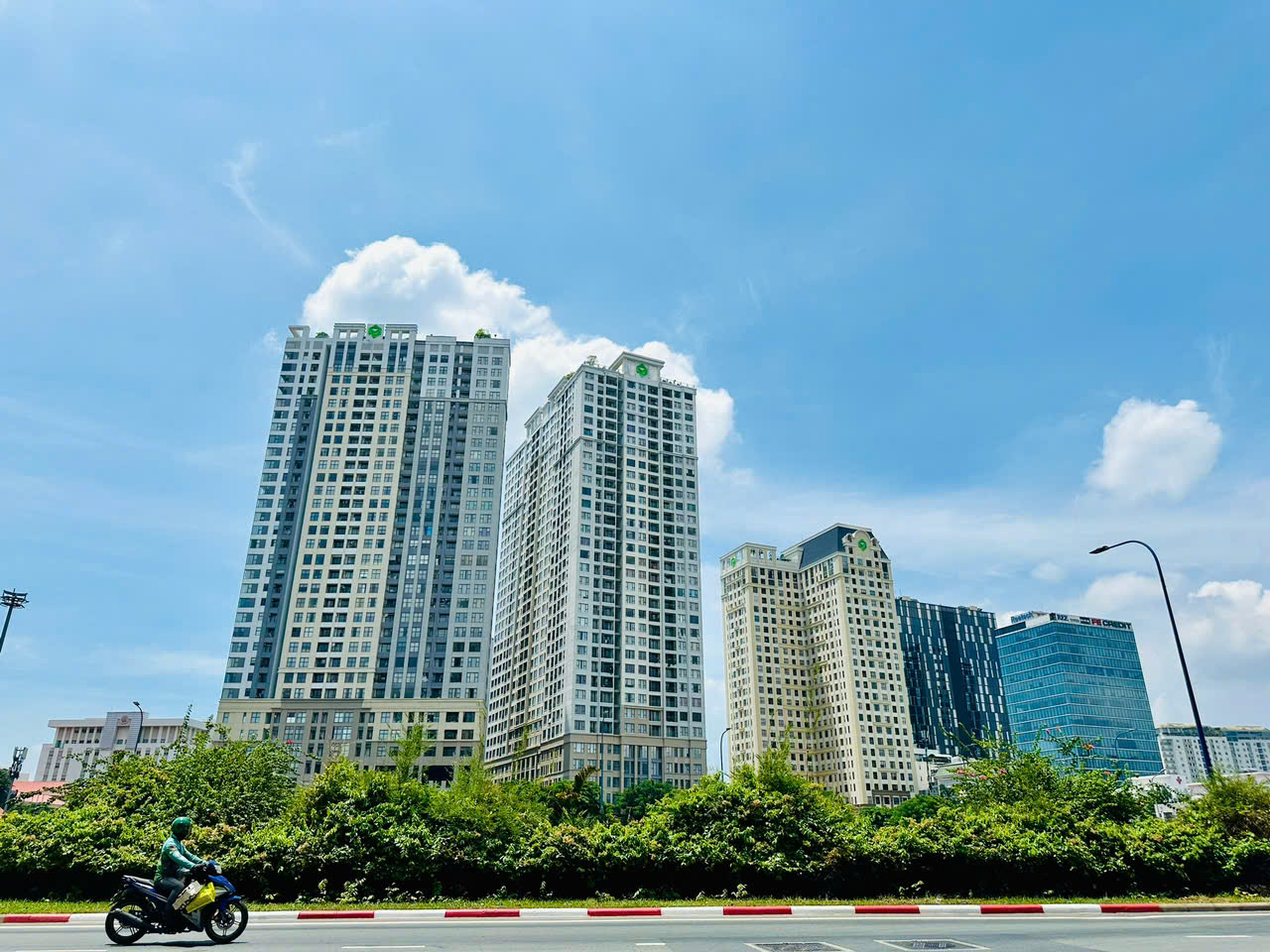
Apartment buildings in District 4, Ho Chi Minh City, where many apartments are rented for short-term stays
A security guard at this apartment complex shared that after the new regulation took effect, the management board implemented inspection and control measures to prevent the use of apartments for daily or hourly rentals. However, not everyone agreed with the management’s decision. “We faced fierce backlash from landlords and service providers. They created a ruckus and even posted our pictures on their internal groups to shame us. Nonetheless, the management and residents remained resolute, and as a result, rental activities have significantly decreased by 70%-80% compared to before,” the security guard revealed.
Similarly, at the River Gate apartment building on Ben Van Don Street, District 4, the management board also posted a notice prohibiting cases of apartment rentals for daily or hourly stays. Notably, the Masteri Millennium apartment complex, also located on Ben Van Don Street and once a hotspot for short-term rentals, has now strictly banned this type of business following intense opposition from its residents.
Ms. Ngoc, a broker for apartment rentals in District 4, said that as many apartment buildings in the area have prohibited short-term rentals, many service providers are upset. Most of them had invested a substantial amount of money to purchase or rent multiple apartments for this business, so they are now facing significant losses. However, according to this broker, while apartment buildings in District 4 are taking a hard line against short-term rentals, in other districts such as District 7 and Binh Thanh, people continue to rent out their places as usual, resulting in a surge of guests flocking to those areas.
Ms. T.V., a resident of District 1 who owns several apartments for short-term rentals, lamented that recently, her tenants have been returning their units one after another, causing her great concern. “I have a few one-bedroom apartments that I rent out to some brokers for 13-14 million VND per month. They then sublet them daily, earning tens of millions of VND each month. But since the beginning of August, they haven’t been able to rent them out. They want to return the apartments or find monthly tenants instead of continuing this business,” Ms. V. shared.
A comprehensive ban?
According to the building management boards, short-term rentals have caused numerous inconveniences for residents who live there permanently. The amenities provided by the developer for residents, such as swimming pools, gyms, lobbies, and elevators, have been freely used by short-term tenants, leading to overcrowding, especially on weekends. In some luxury apartment buildings, residents complained that they now have to wait 10-15 minutes for the elevator, whereas previously, the wait was only 3-5 minutes, due to the constant flow of guests going up and down.
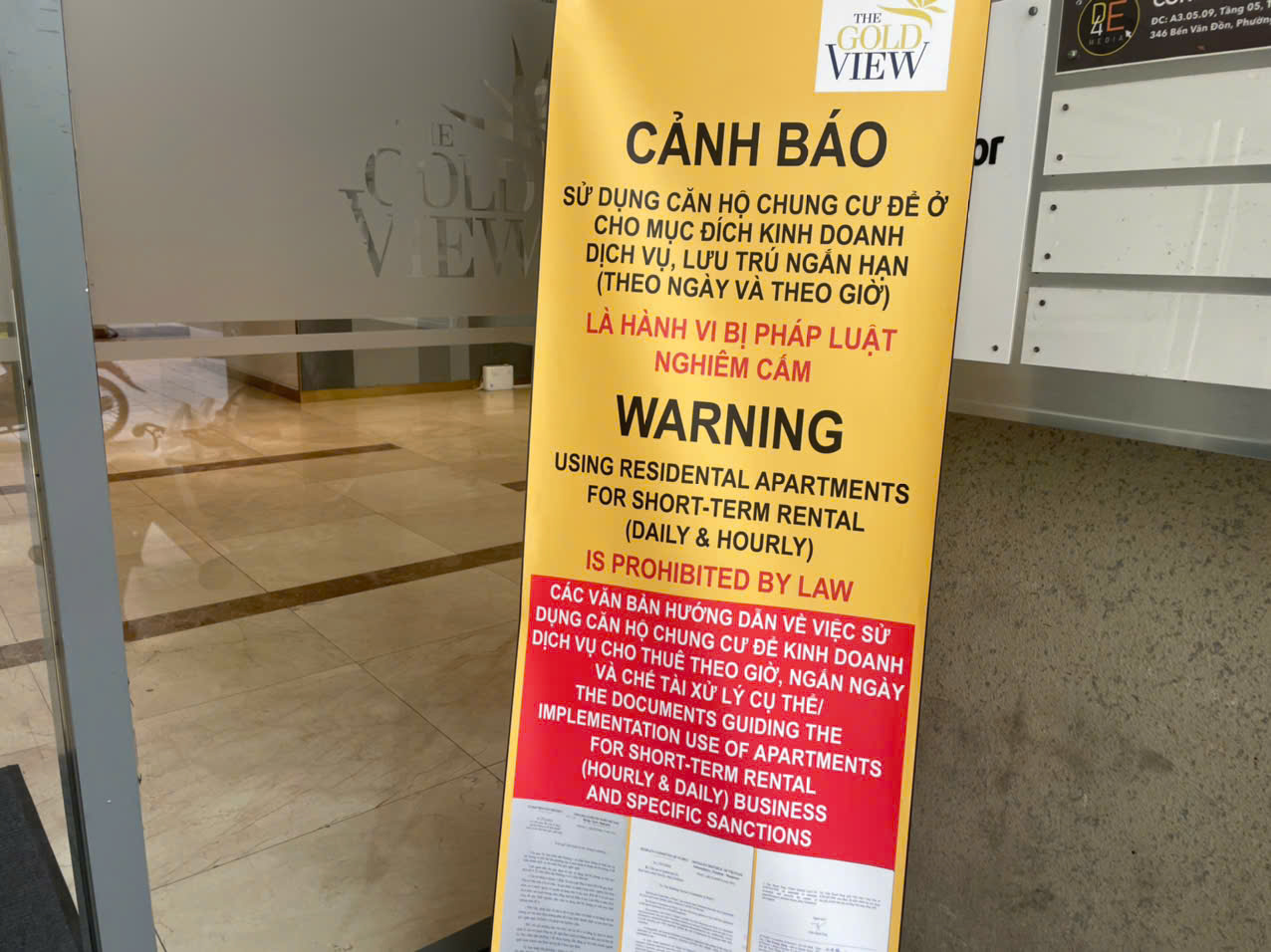
Notice prohibiting short-term apartment rentals at The Gold View apartment building
Ms. Hoang Linh, a resident of an apartment building in Binh Thanh District, opined that short-term rentals in apartment buildings are not inherently bad as they offer convenience to tourists and business travelers at more affordable prices than hotels or resorts. However, due to the lack of proper management by landlords or business operators, unfortunate incidents occur, disrupting the peace of the residents, which is why they are upset.
Ms. Dinh Le Ha, Head of the Management Board of Park 3 building in Vinhomes Central Park (Binh Thanh District), also acknowledged that short-term rentals have caused numerous inconveniences for residents. Most of them disapprove of this type of business. Local authorities have affirmed that daily or hourly apartment rentals are prohibited, but people find loopholes by claiming that the tenants are their relatives and then registering them for temporary residence, making it challenging for the building management and security guards to intervene. “If the rental period is long-term, one month or more, it may be acceptable, but daily rentals are not suitable as they create complexities,” Ms. Ha stated.
From a different perspective, Mr. Le Hoang Chau, Chairman of the Ho Chi Minh City Real Estate Association (HoREA), argued that banning daily or hourly rentals in the style of Airbnb would significantly impact the tourism industry and reduce its competitiveness compared to other countries. Tourists, both domestic and international, including those who are wealthy or have average incomes, often seek reasonably priced accommodations. “In my opinion, both short-term and long-term apartment rentals are legitimate rights of the owners, but they should register their business, pay taxes, and follow clear management regulations to ensure security and order. This is also a way to attract tourists and investors who want to buy apartments for investment or rental purposes,” Mr. Chau expressed.
Need for specific guidelines
According to Ms. Tran Minh Ai, Senior Director of Savills Vietnam’s Property Management Services in Ho Chi Minh City, owners of apartments in condominium buildings who rent out their units or rooms for short-term stays as tourist accommodations violate the 2014 Housing Law and the 2023 Housing Law. However, amid economic hardships, many apartment owners still try to find ways to circumvent the regulations to generate additional income.
To comprehensively address this issue, relevant authorities should take holistic measures, such as providing specific guidelines for managing short-term rentals in condominium buildings, as many countries worldwide have done.
If the ban on short-term rental activities in condominium projects continues, the state management agencies could also consider punitive measures to deter violations of the law.
Vung Tau imposes heavy fines for short-term apartment rentals
According to observations, for over a month, apartment buildings such as Melody (Thang Tam Ward), Golden Sea (Ward 2), and several others in Vung Tau City have unanimously prohibited short-term rentals (homestay) based on a notice from the Social Order Administration Division of the Ba Ria-Vung Tau Provincial Police. Individuals or organizations violating this prohibition will be subject to fines ranging from 10 million to 20 million VND.
Mr. Nguyen Van T., a resident of Melody apartment building, supported the decision to ban homestay services in residential buildings, as short-term rentals cause numerous inconveniences for long-term residents. “During holidays, festivals, and weekends, the large number of guests results in long waits for the elevator. Not to mention the chaotic vehicle traffic, which significantly affects the daily lives of the residents,” Mr. T. said.
However, the owner of an apartment at Golden Sea Vung Tau disagreed, suggesting that a ban is not the optimal solution. Instead, appropriate management measures should be implemented to tap into the tourism potential of this model. Homestay businesses provide stable profits and offer tourists a more intimate and immersive experience. “With the characteristics of a tourist city, Vung Tau should offer diverse accommodation options to cater to different types of travelers, rather than restricting and limiting them,” this person expressed.
Many tourism businesses also suggested that instead of a ban, there should be requirements for business registration and the use of booking applications to monitor revenue and prevent tax evasion.
N.Giang
Depressing Tet? Rent a Self-Drive Car Service
Few self-drive car rental applications have added extra vehicles to cater to the demand during the Lunar New Year holiday, but the actual increase in demand did not meet expectations.
Continuous Change and Adaptability, Affordable Housing Cravings to be “Satisfied” by 2024?
Developing affordable housing will open up opportunities to address the supply-demand imbalance and reduce the overall housing prices in the market. If the market as a whole collaborates and adopts market-driven housing policies, the development of affordable housing will progress alongside social housing.
Motivation behind the real estate market recovery
2023 has been a year full of “emotions” for real estate professionals, businesses, residents, and investors.


















